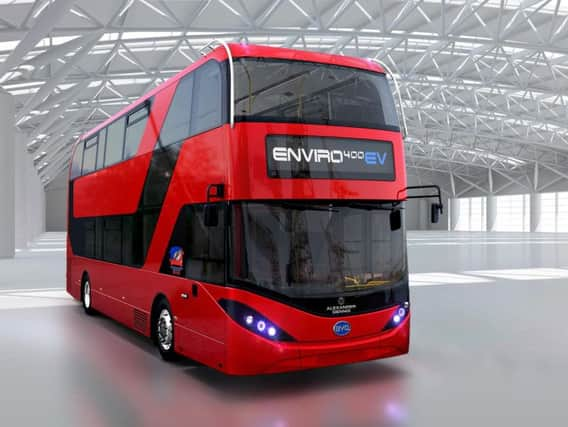Hydrogen buses could come to Leeds in next 20 years


West Yorkshire Combined Authority’s transport committee will meet at the end of this week to discuss how the region can halve carbon emissions over the next two decades.
The report adds work is underway to find out which ideas can be put to use, with fleets of hydrogen-powered buses and infrastructure for electric charging vehicles thought to be the most effective ways of reducing emissions.
Advertisement
Hide AdAdvertisement
Hide AdOther projects include so-called “hyperhubs” – large refuelling stations for different alternative fuels, focussed on larger vehicles.
Car parks in park and ride schemes could also see canopies covered with solar panels, along with electric buses for the routes.
The report added that work to reduce air pollution in the city region could generate around 100,000 new jobs.
It also estimates that benefits of meeting the CO2 reduction target of 53 percent by 2036 could bring in an extra £11bn worth of public spending in the region.
Advertisement
Hide AdAdvertisement
Hide AdIt states: “It is worth stating that at this moment in time the above is based on estimates and a range of assumptions. The majority of the projects needed to meet the science based target are also not fully developed with allocated funding to deliver them.
“While the projects identified to date would not achieve the target, the majority of these interventions are currently led and implemented by the public sector only. There are likely to be significant additional emissions savings available through private sector programmes.
“Future CO2 scenario modelling undertaken to understand the benefits of meeting the 53 percent reduction target has indicated that doing so could generate approximately 100,000 jobs and be worth over £11 billion in GVA.
“The capital spend to achieve these outcomes is estimated to be between £46 and £50 billion of public and private sector investment.”